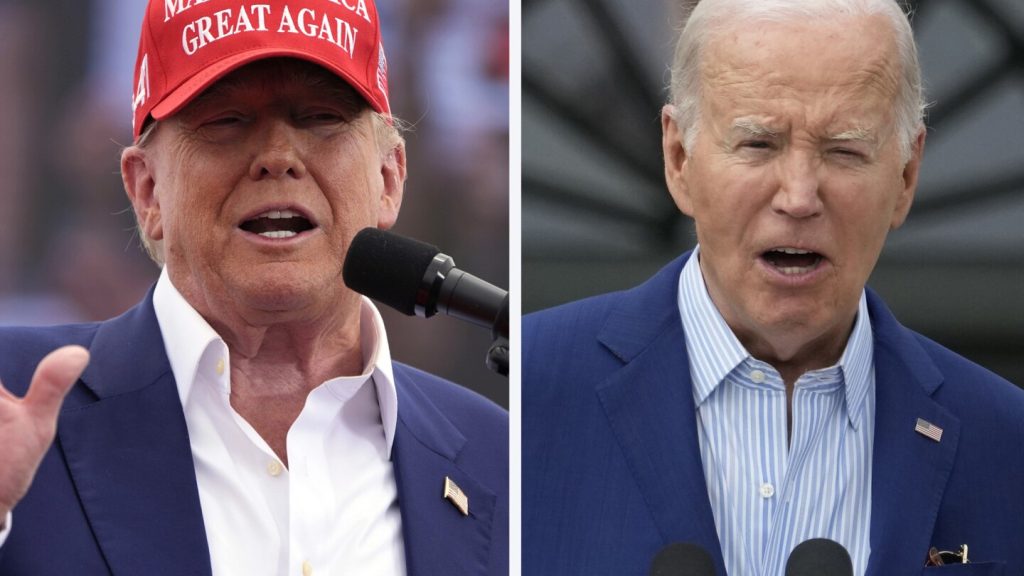The presidential primary calendar has officially come to an end with victories for Democratic President Joe Biden in Guam and the U.S. Virgin Islands. Both Biden and Republican Donald Trump had already clinched their party nominations in March, setting up a historic general election rematch between the current and former president. Despite facing significant political challenges, both Biden and Trump only lost three contests out of more than a hundred, reflecting the strong support of their respective bases. Protest votes against both candidates did not significantly impact the primary results but provide insight into the November general election rematch.
Biden won the Democratic caucuses in Guam and the Virgin Islands, securing all seven delegates in each. These victories marked his 53rd and 54th wins of the primary campaign, with his sole defeat coming in the American Samoa caucuses. Biden’s path to securing the nomination began in 2022 when he proposed changes to the primary calendar, favoring South Carolina over Iowa and New Hampshire. Despite facing minor primary challenges, Biden’s candidacy remained strong, leading to his eventual nomination.
The Republican primary season concluded with Trump winning all but two contests in 2024. His campaign to return to the White House started in November 2022, following his indictments in four federal and state criminal investigations. Despite initial reluctance from some Republican voters, Trump garnered significant support throughout the primary season, with most rivals hesitant to criticize him. Former U.N. Ambassador Nikki Haley was Trump’s last major challenger before suspending her campaign.
Protest votes appeared in both primary races, with campaigns in several states encouraging voters to choose “Uncommitted” to protest Biden’s policies. Similarly, votes for Haley served as a protest against Trump in certain states. These protest votes did not significantly impact the outcomes but have prompted both campaigns to begin efforts to attract dissatisfied voters from the opposing side. The Trump campaign, for instance, is reaching out to Arab Americans in Michigan, while the Biden campaign is targeting moderate Republicans.
As the general election rematch between Biden and Trump approaches, both campaigns are strategizing to appeal to a broader base of voters. In the wake of the primary protests, efforts to woo disaffected voters are underway, with each candidate seeking to shore up support across party lines. The upcoming presidential election promises to be a closely contested battle between two candidates with mixed popularity but steadfast support from their respective parties. The primary contests offer a preview of the strategies and challenges each side faces as they vie for the presidency in November.















